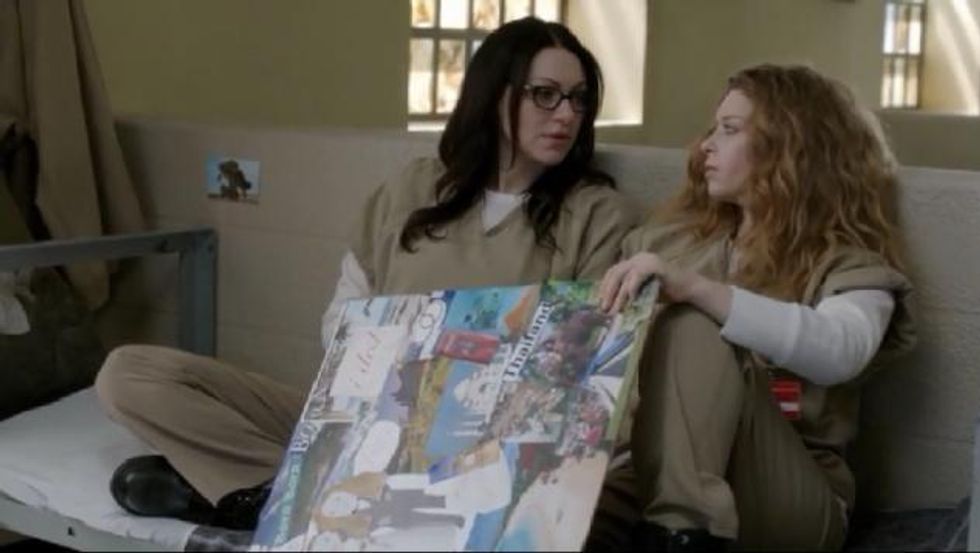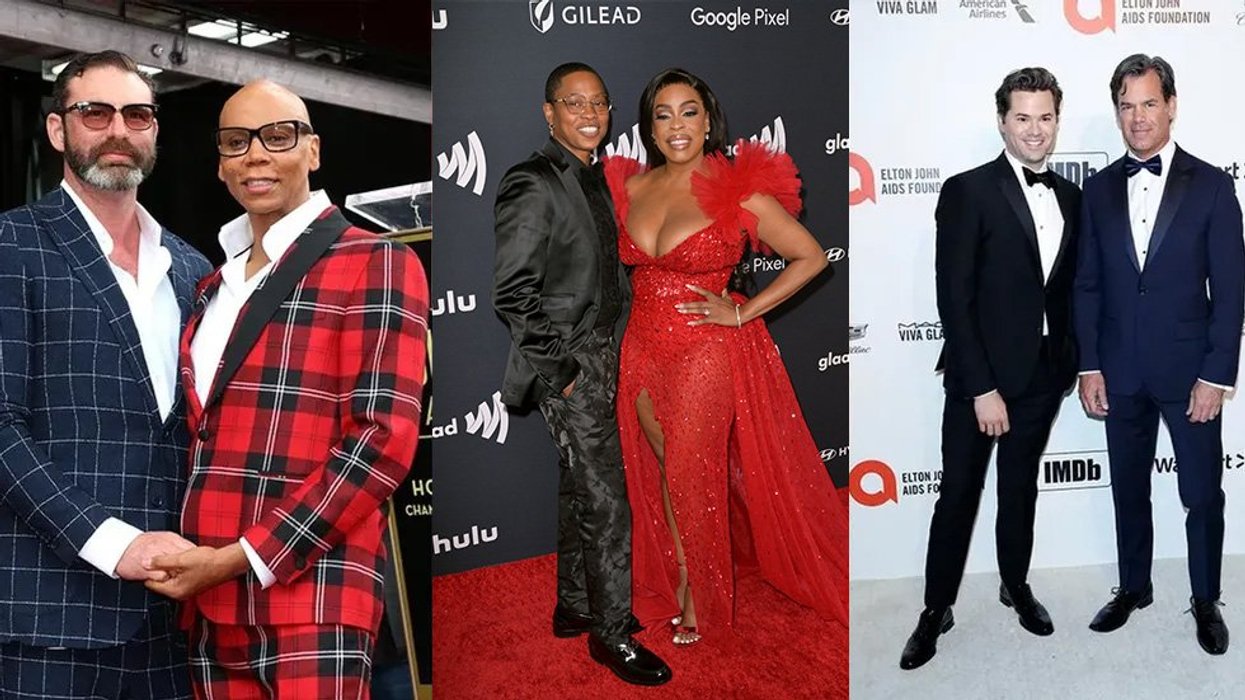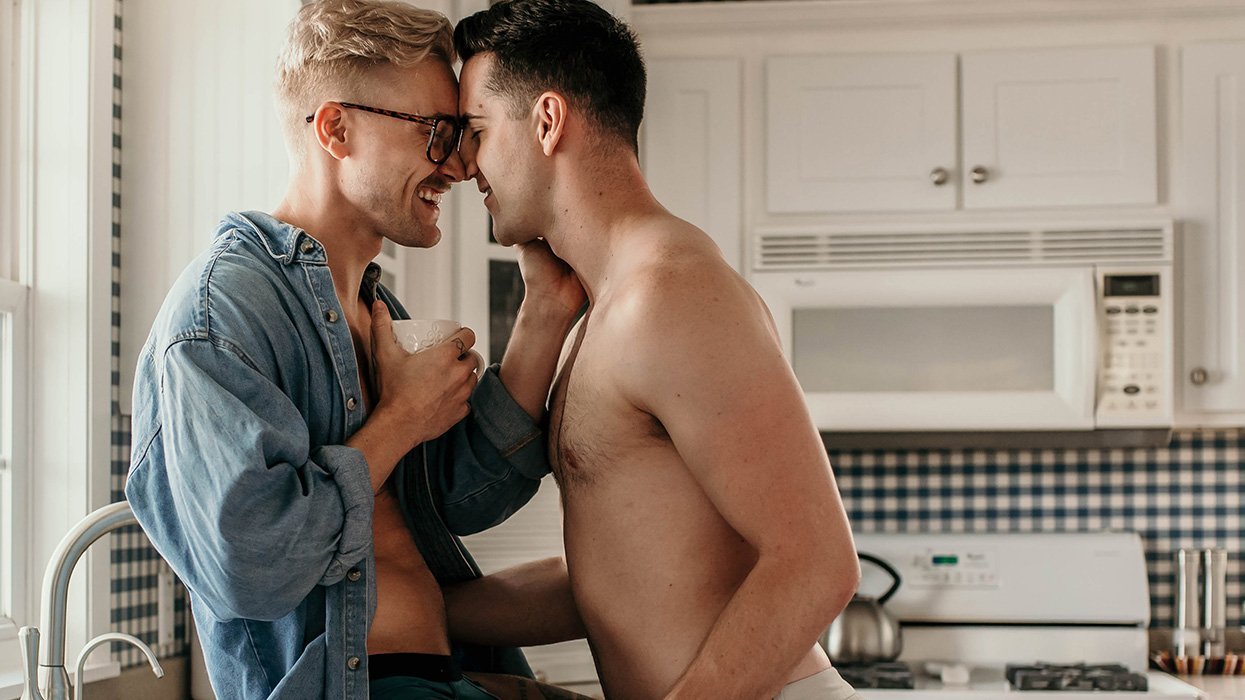So you've met someone clever and gorgeous, and it all looks rosy. But before you, ah, ride off into the sunset holding hands, there are a few things you could discuss to avoid all sorts of doom, disaster, dysfunction and awkwardness further down the line.
1.Do we actually want to be a couple?
…or does one of us (or both of us!) think we’re just FWBs, and want to keep it that way? Just because you’ve been seeing someone for a certain amount of time doesn’t mean you’re obliged to become partners, and having only just met someone doesn’t mean you can’t (although it’s probably worthwhile factoring how much or little you know someone into your thought processes and expectations here.) Knowing you’re compatible as lovers but not as capital-G-girlfriends, cohabitees or wives is just fine actually, as long as you’re both on the same page.
2.What does this mean to us?
Even if you’re both sure you want to be officially "together," it’s worthwhile figuring out what this entails for you both. This doesn’t have to be a formal thing – lists and diagrams are not compulsory, unless that’s how the both of you like to roll – but mismatched expectations can be a big source of tension even in established relationships, let alone new ones. How far will your lives intertwine? Is one of you expecting a big jump in intimacy and closeness if you make it official? How far would you like to combine your social lives? How to balance time with friends and time with your partner? These are all pretty significant questions in terms of how our lives work, and it’s worthwhile discussing them and ironing out any conflicts before you’re having an argument because she’s just been out with her friends for the 3rd night this week and you were expecting a cosy night in with Netflix.
3.Are we monogamous?
This often gets assumed -- although in my experience -- queer circles can be much more open to alternative relationship structures than straight ones. ‘Are we exclusive?’ is a pretty significant question, but if the answer’s ‘no’ that isn’t necessarily a bad thing. Particularly if the two of you are long distance or regularly separated for work or school, considering degrees of openness might be a really positive choice for you. If it isn’t, that’s fine too – the key here is to figure out where you’re both coming from and what works best for the two of you without making value judgements. Open relationships aren’t necessarily less serious or committed than monogamous ones. Since they allow space for attractions to other people to exist within the sphere of the relationship, some people consider them to have greater potential for longevity – as long as your communication is good.
4.What counts as cheating?

If you’re monogamous – and even if you’re not – this one is pretty important. Where do your boundaries lie? What counts as sexual contact? Different cultures and social groups have different physical contact norms, and this can be particularly noticeable if you come from different backgrounds or circles of friends. What does this mean in the context of the relationship? Are you okay with your partner kissing other people? Platonic bed-sharing? If you’re in an open relationship, do you need to be told before she touches anyone else, or is it okay if she just tells you afterwards? Would you prefer not to be told at all? Is seeing other people only okay if you’re in different cities, and would you need sexual exclusivity if you’re in the same place? What about sexual health? This stuff is complicated, and it’s much better to talk about it in advance than have it explode unexpectedly. If you stay with your best friend after a night out and your girlfriend feels betrayed because, to her, sharing a bed is a really intimate and romantic thing, there’s going to be trouble. If you talk about it, you can work it out.
5.What kind of bad stuff might we have to deal with together? Are we both up for that?
Although being queer is much more widely accepted than it used to be (Yay! *waves tiny rainbow flag*) there are still parts of the country and religious cultures in which it’s frowned upon, if not condemned outright. Sadly, there are still huge numbers of queer, gay or trans people who are rejected by their families or their cultural communities, and for whom coming out was and remains a traumatic experience. Particularly if the woman you’re dating is newly out, comes from a religious background with a history of homophobia, or the two of you have markedly different cultural exposures, you might have some backlash to deal with together, or some buried psychological stuff popping up. This doesn’t have to be a problem – like everything, it’s how you deal with the situation much more than the circumstances themselves – but if you flag this stuff up at the get-go, facing it is likely to be less traumatic for you both.
6.How do your identities mesh, and are you prepared to deal with that?
For instance, you’re a lesbian, and your partner is genderqueer or genderfluid. What impact might being together have on your identities? Does it make you bi? Does it make them a woman? How might these tensions affect you both? What are your absolute boundaries in terms of names, definitions, pronouns, explaining one another to the world? What assumptions might people make, and how can you best deal with them? Will one or both of you feel under pressure to hide or diminish part of your identities to fit a more normative construction of your relationship? What might you lose if that were the case? It’s messy and complicated, but the last thing you want to do is project assumptions onto your partner and damage each other and the relationship in the process. Talking it through means you’re prepared, and when those tensions come up you already have some idea about how best to navigate them.
7.What sort of decisions do we expect to make together and/or separately?
Being in a serious relationship with someone means that decisions that you once made alone – where to live? Do I take that exciting new job? What about moving to another city/country? Do I want to travel for work? – now involve and affect another person, just as her decisions affect you. What kinds of life stuff do you need to consult each other about? If she wants to change jobs or locations – or you do – how much input does the other person have? Do they have a veto? How might this affect other, more long-term plans for cohabitation, marriage, even children? And cat ownership? SOMEONE MUST THINK OF THE CATS!
8.How do we feel about money?
Even if you’re not at the stage of cohabiting or sharing a bank account, living intimately with someone means a fair amount of financial involvement. Does one of you budget and balance carefully, whilst the other is mainly unbothered as long as it all vaguely adds up (or even if it doesn’t?) What do you like to spend money on, if you have any spare – is one of you all about little luxuries, while the other saves every penny? Do you have similar incomes, and similar expectations of how that money will be spent? What do you both consider basic or allowable expenses? Who pays when you go out? If you take turns or go halves, can the lower-earning partner keep up? Money is one of the commonest causes of fights between couples, but if you’re aware of likely conflicts it’s much easier to reach compromises in advance.
9)What about exes?
Not that you have to spill all the ugly detail of your past breakups on your second date, but if one of you is best friends with your exes (or has slept with a significant proportion of your friends) and the other has a strict No Contact Ever policy, that’s worth knowing. Especially if the no contact partner is likely to feel threatened. Whilst ultimatums are probably a bad idea, it might be easy for the two of you to work out compromises and/or put reassuring structures in place – regular texts? No overnight stays? Meeting/not meeting the ex in question? Avoiding special occasions or similar? – to help an insecure partner feel better about the situation. It’s also worth pointing out that if someone is dismissive and disrespectful about their previous partners, refuses to admit any responsibility for the end of earlier relationships and/or uses the phrase ‘evil ex’ to describe more than one person, they’re unlikely to have the emotional maturity or functionality to make a great partner for you either.
10)How do we communicate love, or disagreement, effectively?
It sounds monumentally obvious, but different people communicate love in different ways, and the same goes for disagreement and resistance. What makes you feel most loved? What about her? Is it regular sex, loving words, affectionate touch, unexpected gifts, caring gestures? Are there any obvious mismatches there? If at times of stress or emotional conflict your partner needs lots of physical contact, whilst you can’t bear to be touched, it’s much easier to figure out how to accommodate such clashes before the situation is already fraught.
Similarly, if one of you doesn’t want to do something or is unhappy, are you comfortable with saying that directly, or do you drop hints or maintain silence? Do you expect your partner to read these signals the same way you do? If both of you struggle with directly expressing negative things, especially to someone you love (many women are socialised to put others’ feelings before their own, after all) it’s a good idea to flag up to your partner things they might like to look out for and to check in with what you’re actually feeling.
I am indebted to my excellent Facebook friends for discussions around this article. Special mention to Bill, Sharon Frederick, Joanne, Fraulein, Diego, CN, Laurie, Kat, Jennifer, Jenny, Sean, Katy, Karen, and anyone else I’ve forgotten but whose wisdom I have plundered.
Have you liked us on Facebook?
































































































































